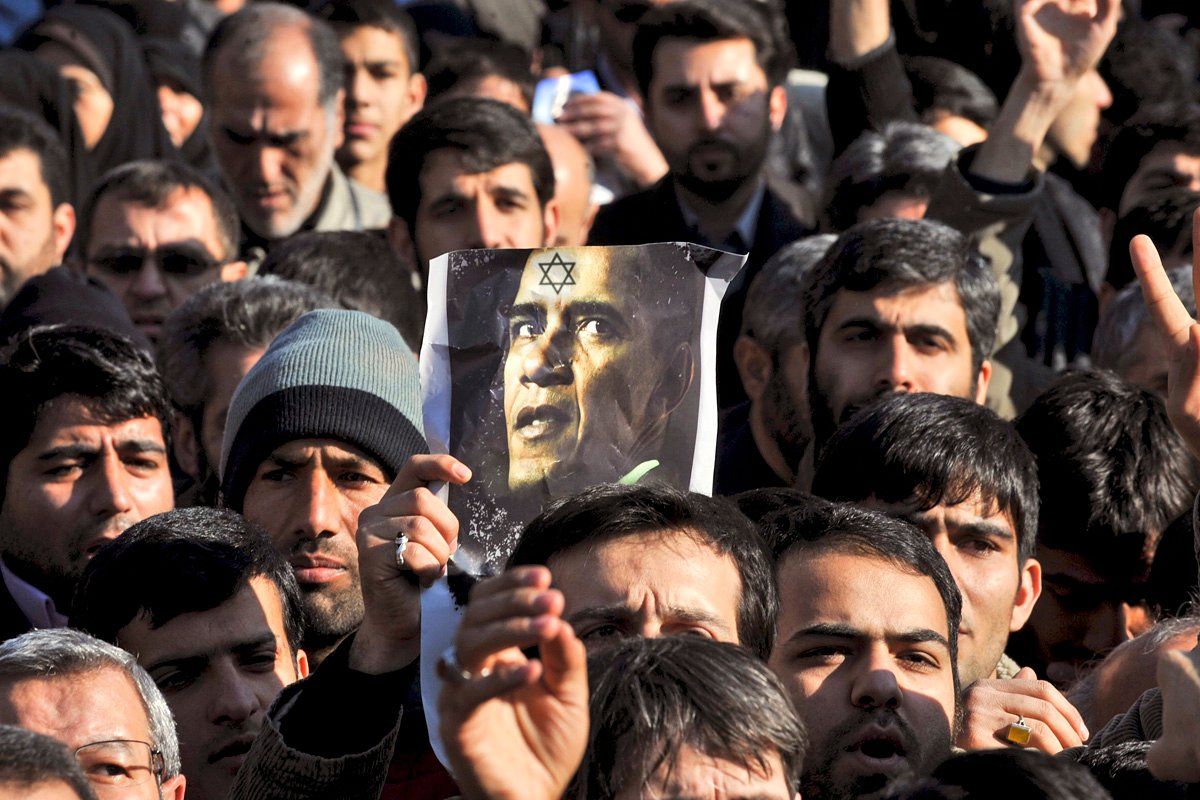
Everyone knows there could be a surprise before Nov. 6—a news story that finally makes up the minds of those undecided voters in the swing states and settles the presidential election.
Right now, Barack Obama certainly needs one.
Well, it is not going to come from the economy (unless you want to factor in the risk of a 1987-style stock-market plunge, which would hardly help the president). And it is not going to come from Donald Trump. And even if the Democrats dig up two more barking-mad Republican candidates for the Senate, both of whom believe that rapes are part of God's plan to make babies, no one is going to be very surprised.
No, the only kind of surprise I can envisage is a foreign-policy surprise. And if the polls get any scarier for the incumbent, we might just have one.
Recently The New York Times—increasingly the official organ of the Obama administration—offered a tease. "U.S. Officials Say Iran Has Agreed to Nuclear Talks" ran the headline. In the story, the Times quoted unnamed officials as saying that one-on-one talks with Iran had been agreed to in "a last-ditch diplomatic effort to avert a military strike on Iran."
For slower readers, the paper spelled out how an announcement would affect the race for the White House: "The prospect of one-on-one negotiations could put Mr. Romney in an awkward spot ... The danger of opposing such a diplomatic initiative is that it could make him look as if he is willing to risk another American war in the Middle East without exhausting alternatives."
Not only that. If the White House could announce a historic deal with Iran—lifting increasingly painful economic sanctions in return for an Iranian pledge to stop enriching uranium—Mitt Romney would vanish as if by magic from the front pages and TV news shows. The oxygen of publicity—those coveted minutes of airtime that campaigns don't have to pay for—would be sucked out of his lungs.
Call it the "Nixon in China" play—though Obama wouldn't actually have time to get to Tehran before the nation votes, whereas Nixon timed his trip to Beijing to perfection, just nine months before he obliterated George McGovern.
The president denied that there was any truth to the story when put on the spot in the final presidential debate. But that was not all he said. "There is a deal to be had," he declared, in words that almost no commentator noticed. But "the clock is ticking."
That, of course, hinted at an alternative surprise—the one I have long expected the president to pull if he finds himself slipping behind in the polls. With a single phone call to Jerusalem, he can end all talk of his being Jimmy Carter to Mitt Romney's Reagan: by supporting an Israeli attack on Iran's nuclear facilities.
Risky, to be sure. But an even bigger game changer than a peace deal. Because nothing would shut Romney up more completely than a military showdown with Iran. I have a feeling it would work wonders for the president in Florida, too.
The scene is being set even as I write. First came the reports last Thursday that the Iranians have "virtually completed" an underground uranium-enrichment plant at a site called Fordo, near the holy city of Qum. Equipped with 3,000 centrifuges and so deep beneath the earth's surface that only a U.S. "massive ordnance penetrator" could reach it, this is precisely the kind of facility the Israelis fear.
Now look at what is happening in Israel itself, where the prime minister, Benjamin Netanyahu, has just formed a "war cabinet" by merging his Likud Party with the hardline Yisrael Beytenu party of Avigdor Lieberman.
Events are moving fast all over the region. The assassination of a security chief in Beirut; yet another massacre in a suburb of Damascus, Syria; an inflammatory visit by the emir of Qatar to the powder keg that is Gaza—it all serves to underscore Romney's argument that, by giving the impression of weakness, the president has unleashed turmoil and emboldened extremists around the world.
Of course, it may now be too late to wag the dog. It may, after all, come down to the dirty old ground game I wrote about in last week's column—the bare-knuckle fight to win the vital votes in the vital states. But never underestimate the ruthlessness of the Chicago machine that has been the key to Barack Obama's rise. With his fall suddenly a real possibility, the only thing that would really surprise me would be no October—or November—surprise.
Uncommon Knowledge
Newsweek is committed to challenging conventional wisdom and finding connections in the search for common ground.
Newsweek is committed to challenging conventional wisdom and finding connections in the search for common ground.
About the writer
To read how Newsweek uses AI as a newsroom tool, Click here.






